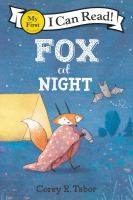Amy Seto Forrester
(she/her) is a youth services supervisor at Eugene Public Library (OR). After serving on the 2016 Geisel Award Committee, she helped to co-found and then co-host Guessing Geisel for several years. She writes books for developing readers with her author-illustrator brother, Andy Chou Musser. Their first book will be published by Chronicle Books. She is represented by Marietta Zacker of Gallt & Zacker Literary Agency.
As someone who eagerly awaits the release of any and all beginning reader titles, I’ve always kept my eye on reviews in professional journals such as School Library Journal, Kirkus, Horn Book, Booklist, Publisher’s Weekly, and the Bulletin for the Center of Children’s Books. I’ve recently started a new job that includes selecting beginning reader titles, a change for me as my last library system had centralized collection development. Now that they are vital to my daily work, I’m reminded how few beginning reader reviews there are, especially in comparison to other kidlit formats.
So here’s my wish list for beginning reader reviews from professional journals. Some changes can be made by reviewers themselves (perhaps that includes you, dear reader!), while others rely on journals reassessing how they organize and present reviews. It’s my hope that 2022 brings us many of these changes!
Beginning readers are reviewed as books for independent readers, rather than as books to be read aloud by an adult to a child. This might seem like a subtle difference, but consider the difference font design and size, vocabulary, and layout can make when it comes to creating a successful reading experience for developing readers. I’m looking for a review that tells me about word repetition, white space, page turning dynamic, etc. not a review that tells me if a beginning reader is fun to read aloud at preschool storytime.
Create a beginning reader category in print journals and online databases. Many journals divide their books by age or grade. Often, beginning readers get lumped in with picture books or in a category that encompasses “Elementary” or “Younger Readers.” Selectors are then challenged to determine which titles might be beginning readers. For me this involves using page count and trim size as a starting point and then searching for more information on a title to see if I can get a sneak peek of the interior or find some other clues that tell me about vocabulary, layout, font, etc. This is time consuming and I’m pretty sure there are wonderful titles that fall through the cracks. Kirkus has an “Early Reader” category and I would love to see something similar from other journals.
Create a beginning reader category for best book lists. Did you know that the ALSC Notables Children’s Book List does not include a category for beginning readers? It’s also a missing category in the best book lists from SLJ, Kirkus, and Horn Book (to name a few). Might this lack of category correlate with the low numbers of beginning readers included on these lists?
Review more beginning reader titles. Books that get reviewed are more visible to selectors. If it’s not reviewed, I might not even have it on my radar. And even if I do, I have to rely on prior knowledge of the creators, publisher reputation, or the world wide web to determine if it’s a good fit for my library. The percentage of beginning readers reviewed out of the number that are published each year is strikingly low, especially when compared to picture books, middle grade, and even graphic novels.
Take Action!
You might be wondering what you can do right now to change the landscape of beginning reader reviews. I encourage you to take one or more of these actions to advocate for beginning reader reviews and increase their quality too!
If you write for a professional review journal, ask them to assign you beginning readers and let them know how helpful that content would be to you and your colleagues.
If you subscribe to a professional review journal, email them to ask for a beginning reader category or tag to make beginning readers easier to find. Bonus points if you let them know that beginning reader reviews are most helpful when written with a format-specific lens.
Kick your beginning reader book reviews up a notch by digging into these helpful resources:
What else do you yearn for in beginning reader reviews from professional journals? Use the comments below to share your ideas, questions, and thoughts.








